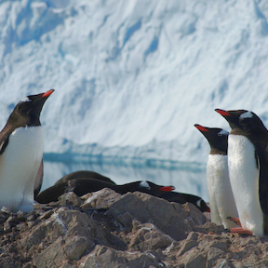According to a new study, the Gentoo penguin is benefiting from climate change, while the chinstrap and Adélie penguins are not. Researchers used DNA analysis to assess the historic demographics and population structure of these species, and found that Gentoo penguins are climate change ‘winners’ and are expanding their range southward, while the two other […]
Tag: biology
Silent mutations aren’t so silent after all
A new study suggests that ‘silent’ mutations – changes to DNA that don’t alter the structure of the protein it encodes – may nonetheless have an impact on evolution. For example, alanine – an amino acid, one of the building blocks of DNA – can be encoded as GCC, GCA or GCG; these codes are […]
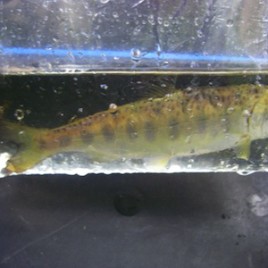
Pacific salmon species benefit each other
The number of juvenile coho salmon in a stream can be up to three times higher if pink or chum salmon were there the season before, according to a new paper. Juvenile coho have been known to scavenge the carcasses or eggs of their cousins, but most of the coho in the latest study emerged […]
Spanish flu could re-emerge from avian flu
Influenza viruses circulating among wild birds could, in the right combinations, combine to create a virus very similar to that which caused the 1918 worldwide pandemic known as “Spanish Flu”, according to a new paper. The authors combined avian flu viral segments that were only a few amino acids different than those of the Spanish […]
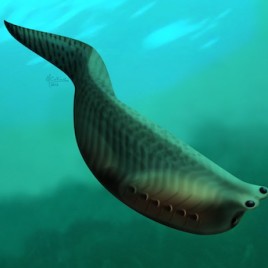
New fossils provide ‘a view to a gill’
New fossils of an ancient fish from Marble Canyon in British Columbia’s Kootenay National Park have provided insight into how jaws evolved. The remains represent the best-preserved fossils of Metaspriggina walcottii, a 500 million-year-old species that is among the oldest known fish. Based on the shape of features called ‘branchial bars’ associated with the gills, the […]
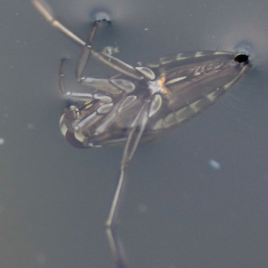
How bugs decide when to fly the coop
Many animals seek new habitat if they are too crowded or if there are too many predators, but new research suggests that the effect of these two factors can’t easily be separated. Researchers filled artificial pools with backswimmers, insects that normally swim but that can fly to a new pool if stressed. Introducing a predator […]

Blood test could detect osteoarthritis earlier
A new blood test could help doctors diagnose osteoarthritis in its earlier stages. Blood tests based on antibodies already exist for rheumatoid arthritis, however diagnosis of osteoarthritis relies on expensive equipment like MRI scanning machines, and even then it often can’t be detected until it is relatively advanced. In the new study, researchers used a […]
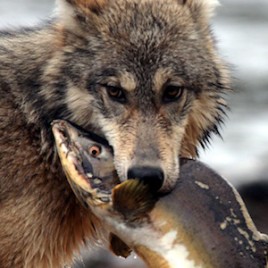
Genetics affirm existence of BC’s ‘coastal wolves’
New genetic information affirms what members of the Heiltsuk First Nation have long known: the islands off British Columbia host a population of ‘coastal wolves’ that is distinct but related to that of the timber wolves on the mainland. Examination of genetic markers from DNA collected in wolf droppings shows that coastal wolves are more […]
Transplanted neurons thrive in Parkinson’s-affected brains
Neurons transplanted into the brains of adult patients with Parkinson’s disease 14 years ago are still healthy, a new study shows. Researchers checked on five patients that received transplant of dopamine-secreting neurons from fetal tissue and report that the neurons had not degenerated over time. Parkinson’s disease is caused by loss of dopamine-secreting neurons and […]
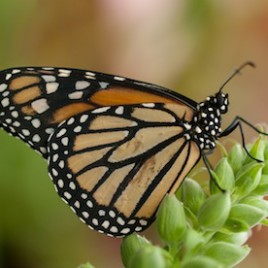
Milkweed needed to save monarchs
A new study bolsters the notion that a lack of milkweed in summer breeding grounds is contributing to the decline of the monarch butterfly. Previous research indicated that the decline of monarchs may be due to catastrophic die-offs in overwintering grounds in Mexico, caused by loss of forest habitat or extreme weather events linked to […]
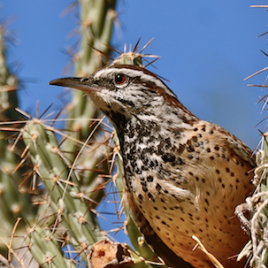
It takes a community to raise a healthy bird
A new study shows that birds that cooperate to raise their young have better year-on-year survival than those that don’t. In certain bird species – found mostly in Australasia or Africa – children from the previous year and from other parents help raise the newborns. A careful review of the research on this rare phenomenon […]
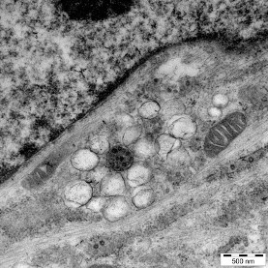
Small compound could help fight coronaviruses
Researchers have found that a small chemical compound called K22 can interfere with the ability of coronaviruses to use the internal membranes of host cells for their own replication. Although it’s still a very long way from being a drug, the fact that the molecule shows activity against a wide range of coronaviruses – including […]
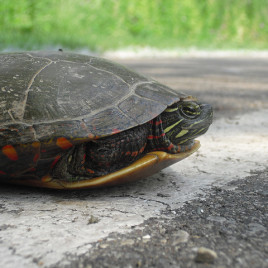
Do Roads Reduce Painted Turtle Populations?
A new study shows that high traffic roads in Eastern Ontario have no significant effect on the relative abundance of painted turtles. Researchers compared turtle populations from around 20 ponds, half of which were close to a freeway and the other half of which were as far as possible from any major roads. They found that […]

Does counting tracks to estimate animal populations actually work?
A new computer analysis shows that animal tracks can provide an accurate estimate of animal populations in a given area. Biologists often use animal tracks for relative estimates – e.g. more over here than over there – but because tracks can twist and turn, they shy away from using them to get an absolute number of […]
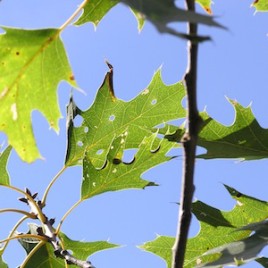
Plants – what’s eating them?
A new analysis of over 1000 plant species shows that on average, only about 5.3 percent of their leaves are eaten by insects and vertebrate grazers – less than a third of previous estimates. This means that most of the energy captured by photosynthesis doesn’t go ‘up’ the food chain, but instead is passed on […]
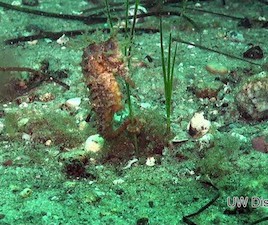
Rare seahorse spotted off Nova Scotia
Two divers recently spotted a lined seahorse (Hippocampus erectus) – rarely seen in Canada – off St. Margaret’s Bay, Nova Scotia. They uploaded the photo to iSeahorse, a smartphone app developed by an international team of seahorse scientists, including UBC marine biologist Amanda Vincent. The ‘citizen science’ initiative is critical due to the fact that […]
